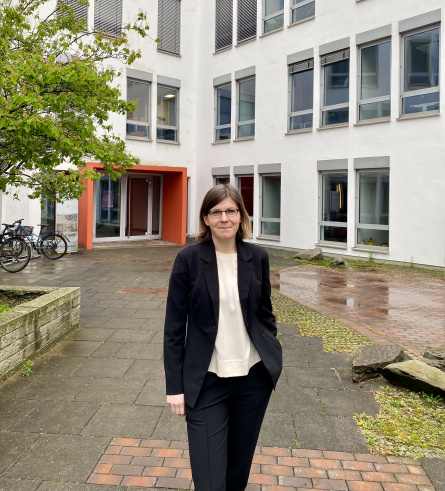
Zur Auftaktveranstaltung der Jour Fixe-Vorlesungsreihe des Sonderforschungsbereichs 1342 im Sommersemester 2024 war Dr. Kris-Stella Trump von der Johns Hopkins University aus den USA zu Gast in Bremen. In ihrem Vortrag gab sie spannende Einblicke in ihre aktuelle Forschung und tauschte sich in der anschließenden Diskussion mit Kolleginnen und Kollegen vor allem über methodische Fragen hinsichtlich der Erstellung und Durchführung von Umfragen aus.
Abstract:
Accurately measuring public perceptions of economic phenomena is complicated, but doing so is important for responsive policy-making. Survey measurement difficulties are particularly pronounced when it comes to economic inequality, which is an abstract and mathematically demanding concept, but perceptions of which have the potential to directly affect the desirability of redistributive policies. In this paper, we compare different ways to ask questions about perceived inequality, characterizing the costs and benefits of different approaches. In particular, we ask whether relatively complicated survey items result in high rates of “satisficing” and/or high rates of non-response, with consequences for survey quality. In a survey fielded to representative samples in Switzerland, Germany, and France, we ask respondents about income inequality in two different ways. First, respondents estimate household incomes at specified percentiles of the income distribution. Later in the survey, they estimate the incomes that qualify a household as rich or poor, respectively. We anticipate that because the percentile questions are relatively abstract, respondents may rely on their prototypes of the rich and the poor when answering, leading to similar answers to the two sets of questions. We also anticipate that because the percentile questions are more mathematically involved, we may see systematic non-response patterns. The results show that in all three countries, the 90th percentile, the 99th percentile, and the rich are seen as significantly different from each other in terms of household income. At the same time, we find significant rates of non-response and uninformative responses in the percentile questions (but not the questions about the rich/poor). We conclude that even apparently low levels of mathematical complexity in question wording can lead to non-response patterns that affect the representativeness of survey samples.
Publikation:
Trump, Kris-Stella (2023): “What does it take to be rich? Asking reasonable survey questions about income inequality.” Research & Politics 10(3).
Kris-Stella Trump is a political scientist at Johns Hopkins University. A scholar of public opinion and political psychology, she primarily studies perceptions of deservingness, attitudes toward income inequality, and the politics of distribution. Her regional focus lies in the United States and Western Europe. Kris-Stella joined Johns Hopkins from the University of Memphis, and prior to that, she served as program director at the Social Science Research Council. She holds a Ph.D. in political science from Harvard University. She is Estonian by origin, and also lived in Sweden and the United Kingdom before moving to the United States. You can find out more at: https://www.kstrump.com
Kontakt:
Dr. Nate Breznau













